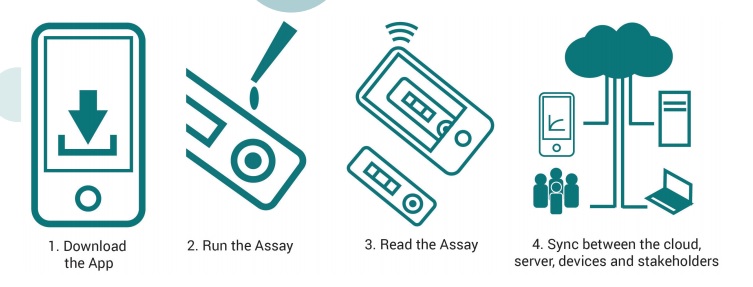University of Birmingham develops sight-saving treatment for eye infection or trauma
21 December 2018: Scientists at the University of Birmingham have developed a novel eye drop that rapidly reduces sight-threatening scarring to the surface of the eye.
The surface of the eye (the cornea) is usually transparent but scars resulting from eye infection or trauma make it opaque causing blurred vision – or in extreme cases complete blindness.
Their pre-clinical research, published today in npj Regenerative Medicine, shows that within a matter of days the eye drop speeds healing, reduces scarring and improves corneal transparency compared to the current standard of care for Pseudomonas aeruginosa, an eye infection commonly associated with poor contact lens hygiene. The current standard of care for eye infection are eye drops containing antibiotics and corticosteroids to reduce inflammation, followed by intensive lubrication to prevent further damage to the eye during blinking. These treatments effectively sterilize the eye, although some patients are left with visual ‘hazing’ due to scars on the cornea. The only option to correct this is costly and cumbersome surgical interventions, such as corneal transplants, which are fraught with risks of failure or rejection.
The Birmingham scientists, led by Professors Liam Grover and Ann Logan from the University’s School of Chemical Engineering and Institute of Inflammation and Ageing respectively, have developed the eye drop which consists of a fluid gel loaded with a natural wound-healing protein called Decorin.
Professor Ann Logan stated that “this innovative fluid gel in the eye drop is designed to retain the Decorin on the surface of the eye, and form a ‘therapeutic bandage’ that promotes scarless healing”.
Professor Liam Grover explains: “The fluid gel is a novel material that can transition between a solid and liquid state. This means it contours itself to the surface of the eye, is retained there, and is only slowly removed by blinking.” This research has shown for the first time that the fluid gel has a therapeutic effect in its own right, and they believe it forms a protective barrier that protects the surface of the eye from further damage caused by blinking. The fluid gel has been patented by University of Birmingham Enterprise.
Dr Richard Moakes, also from the School of Chemical Engineering explained, “We are now continuing our work to test and refine the formulation for this novel anti-scarring eye ‘bandage’ ”.
Dr Lisa Hill, from the University’s Institute of Clinical Sciences, comments: “The anti-scarring eye drop has the potential to vastly improve outcomes for patients with eye infection and trauma. It could also help save many people’s sight, particularly in the developing world where surgical interventions such as corneal transplants are not available.”
ENDS
Media information, IP and licensing enquiries:
Ruth Ashton, University of Birmingham Enterprise
T: ++ 44 121 414 8646
M: ++44 7989 558 041
Reference
Hill et al (2018). Sustained release of decorin to the surface of the eye enables scarless corneal regeneration. npj Regenerative Medicine. DOI: 10.1038/s41536-018-0061-4.
About the research
The study was funded by a Medical Research Council Developmental Pathway Funding Scheme (MR/N019016/1).
About the University of Birmingham
The University of Birmingham is ranked amongst the world’s top 100 institutions. Its work brings people from across the world to Birmingham, including researchers, teachers and more than 5,000 international students from over 150 countries.
About University of Birmingham Enterprise
University of Birmingham Enterprise supports academics who want to innovate, take their ideas to market, work with businesses and social enterprises, or enrich their professional lives by doing academic consultancy projects. We do this by providing enterprise training, funding, office and laboratory space, and a full technology transfer service. University of Birmingham Enterprise also manages the incubation services and facilities at the Birmingham Research Park.


